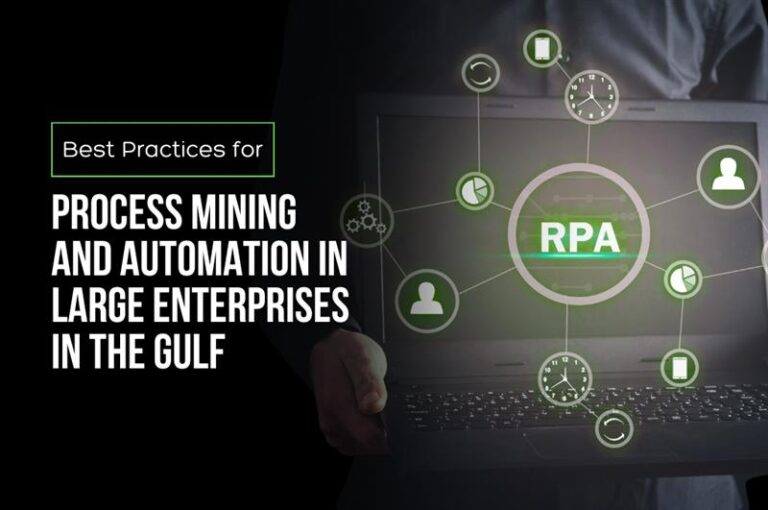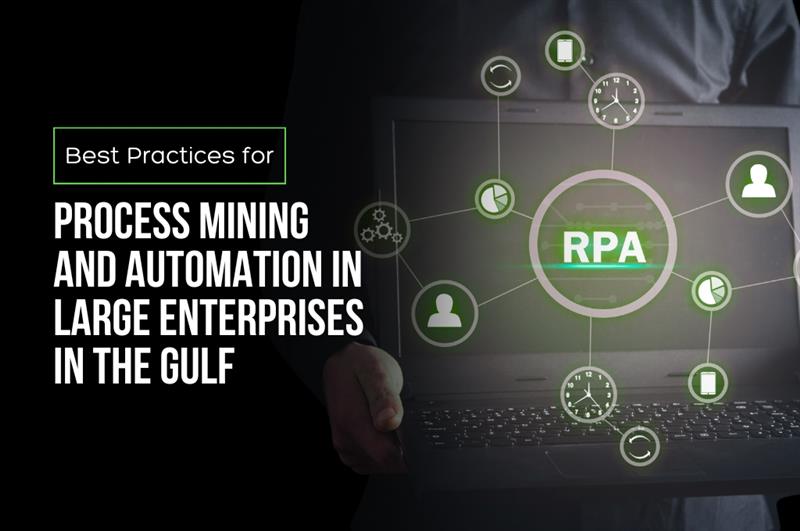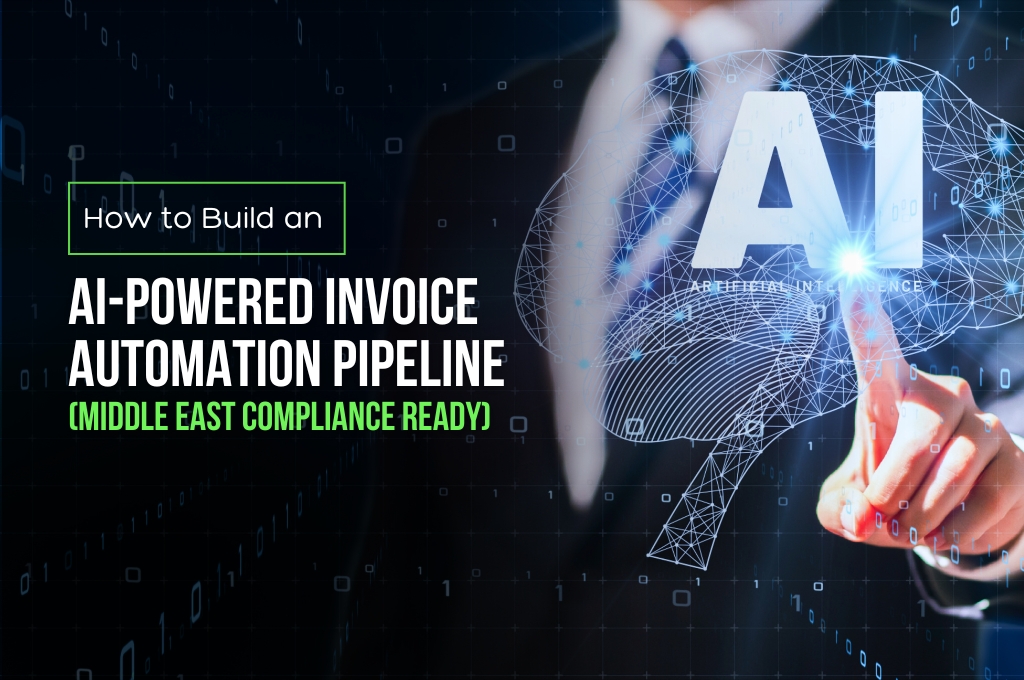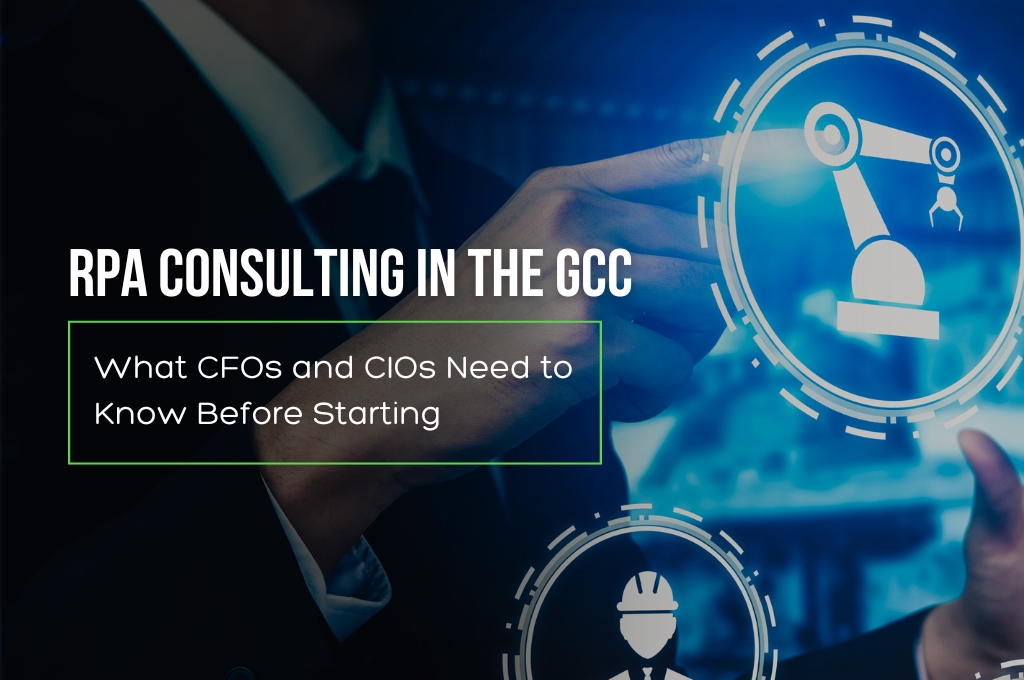Large enterprises in the Gulf operate in uniquely complex environments- multiple business units, layered legacy systems, strict regulatory frameworks, and a growing mandate to digitize fast.
While automation offers a clear promise – reduced costs, faster operations, and fewer human errors, many Gulf-based organizations find themselves automating chaos rather than creating clarity. Why? Because they jump straight into tools without understanding the underlying processes.
That’s where the real power of RPA process mining comes in. When paired with well-structured business process automation services, it allows enterprises to not just automate faster, but smarter – with visibility, strategy, and compliance at the core.
In this blog, we’ll walk you through the key best practices for implementing automation in large Gulf enterprises – drawn from global frameworks and grounded in regional realities.
1. Begin with Process Discovery — Not Automation
Jumping into automation without fully understanding your existing processes is like pouring concrete over a pothole — it looks smooth for a while, but the cracks resurface.
Many Gulf enterprises operate with a mix of legacy systems, manual workflows, and undocumented exceptions. Before introducing bots or automation tools, it’s essential to map the real process, not the assumed one.
That’s where RPA process mining proves invaluable. By using event logs from systems like SAP, Oracle, or custom ERPs, you can visualize actual workflows: how long they take, where bottlenecks occur, and where compliance risks hide.
Benefits of process mining in this stage:
- Identify variations and inefficiencies across departments or regions
- Discover redundant steps ripe for automation
- Prioritize high-impact opportunities based on real data
This first step ensures your business process automation services don’t just digitize — they optimize.
2. Align Automation Goals with Strategic KPIs
In the rush to automate, many enterprises measure success by number of bots deployed or tasks completed — but this rarely reflects true business value.
Instead, leading Gulf enterprises anchor their automation efforts to strategic KPIs: reducing turnaround time, improving compliance rates, enhancing customer satisfaction, or cutting operational costs by a defined margin.
For example, a logistics company in the UAE might use business process automation services to reduce order-to-cash cycle time by 40%. Or a financial institution in Saudi Arabia might apply RPA process mining to identify process delays that contribute to SLA breaches.
Pro Tip:
Create a business case for each automation initiative. Map it back to revenue impact, regulatory benefit, or customer experience — not just operational convenience.
This approach not only aligns automation with leadership priorities, but also unlocks budget, cross-team support, and long-term scale.
3. Prioritize High-Volume, Rule-Based Tasks
Not all tasks are created equal — and not all are worth automating first. For Gulf enterprises with large back-office operations, the smartest place to start is with high-volume, repetitive, and rule-based processes.
These include areas like:
- Accounts Payable & Receivable
- Procurement Approvals
- Employee Onboarding & Offboarding
- Customer KYC Processing
- Order Management
These functions are common across sectors — from oil & gas giants in Qatar to logistics groups in the UAE – and are often bottlenecks due to human dependency and inconsistency.
By using RPA process mining, companies can analyze how frequently these tasks occur, where the delays happen, and how standard the workflows really are. From there, business process automation services can be designed to execute them with speed and accuracy.
This ensures faster ROI and smoother adoption across departments.
4. Address Compliance Early — Especially in Regulated Sectors
In heavily regulated sectors like finance, healthcare, energy, and government services, compliance is not an afterthought — it’s a design requirement.
For Gulf enterprises, this means automation initiatives must account for:
- UAE’s Personal Data Protection Law (PDPL)
- Saudi Arabia’s Cloud Computing Regulatory Framework (CCRF)
- Mandatory audit trails and data residency rules
This is where RPA process mining becomes more than just a discovery tool — it becomes a compliance asset. By mapping out who accesses data, how approvals flow, and where bottlenecks occur, enterprises can pinpoint potential violations before deploying automation.
Example:
An RPA bot pushing financial data without a human approval loop in a KSA-based enterprise could violate internal controls. Process mining helps reveal such risks in advance.
Working with business process automation services that understand these regional laws ensures that your digital transformation is fast, but never reckless.
5. Combine RPA with Human-in-the-Loop Models
Full automation is a powerful goal — but it’s not always practical, or safe. In the Gulf’s enterprise landscape, many processes still require judgment, approvals, or escalation protocols that cannot be entirely handed over to bots.
That’s where human-in-the-loop (HITL) models come in.
- These systems blend RPA with human oversight — ideal for handling:
- Invoice approvals above a certain threshold
- Exceptions in supply chain or HR workflows
- Case reviews in healthcare or banking
- Audits or flagged anomalies from process mining
For instance, a bot might prepare a VAT filing draft, but a compliance officer in the UAE gives the final green light. This hybrid approach protects against over-automation and ensures regulatory confidence.
Process mining helps identify which parts can be automated, and which require human checkpoints. Combined with business process automation services, it results in both scale and safety
6. Use Machine Learning to Improve Over Time
Automation isn’t a one-time deployment — it’s a system that should learn and improve continuously. That’s where machine learning (ML) adds exponential value, especially in complex enterprise environments across the Gulf.
Once your bots are handling structured, rule-based tasks, you can introduce machine learning as a service (MLaaS) to take on more nuanced roles, such as:
- Predicting process delays based on historical patterns
- Flagging anomalies in financial data that may signal fraud or non-compliance
- Categorizing vendor risks in procurement workflows
- Recommending process improvements based on real-time dataa
When layered on top of RPA process mining, ML can uncover correlations that humans may miss — helping large enterprises optimize decision-making, reduce manual oversight, and adapt to changing business conditions.
It’s the difference between simply automating what exists… and evolving it intelligently over time.
Partnering with the right business process automation services provider helps build governance into your automation journey from day one — instead of trying to fix it later.
Ready to automate with clarity and compliance? Predikly delivers Gulf-ready RPA process mining and business process automation services.




